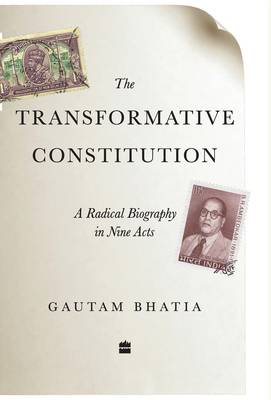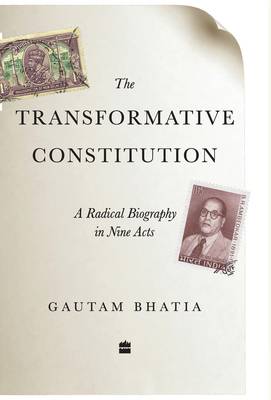
Door een staking bij bpost kan je online bestelling op dit moment iets langer onderweg zijn dan voorzien. Dringend iets nodig? Onze winkels ontvangen jou met open armen!
- Afhalen na 1 uur in een winkel met voorraad
- Gratis thuislevering in België vanaf € 30
- Ruim aanbod met 7 miljoen producten
Door een staking bij bpost kan je online bestelling op dit moment iets langer onderweg zijn dan voorzien. Dringend iets nodig? Onze winkels ontvangen jou met open armen!
- Afhalen na 1 uur in een winkel met voorraad
- Gratis thuislevering in België vanaf € 30
- Ruim aanbod met 7 miljoen producten
Zoeken
€ 39,45
+ 78 punten
Omschrijving
SHORTLISTED FOR THE TATA LITERATURE LIVE NON-FICTION BOOK OF THE YEAR 2019 We think of the Indian Constitution as a founding document, embodying a moment of profound transformation from being ruled to becoming a nation of free and equal citizenship. Yet the working of the Constitution over the last seven decades has often failed to fulfil that transformative promise. Not only have successive Parliaments failed to repeal colonial-era laws that are inconsistent with the principles of the Constitution, but constitutional challenges to these laws have also failed before the courts. Indeed, in numerous cases, the Supreme Court has used colonial-era laws to cut down or weaken the fundamental rights. The Transformative Constitution by Gautam Bhatia draws on pre-Independence legal and political history to argue that the Constitution was intended to transform not merely the political status of Indians from subjects to citizens, but also the social relationships on which legal and political structures rested. He advances a novel vision of the Constitution, and of constitutional interpretation, which is faithful to its text, structure and history, and above all to its overarching commitment to political and social transformation.
Specificaties
Betrokkenen
- Auteur(s):
- Uitgeverij:
Inhoud
- Aantal bladzijden:
- 544
- Taal:
- Engels
Eigenschappen
- Productcode (EAN):
- 9789353026844
- Verschijningsdatum:
- 28/02/2019
- Uitvoering:
- Hardcover
- Formaat:
- Genaaid
- Afmetingen:
- 140 mm x 216 mm
- Gewicht:
- 820 g

Alleen bij Standaard Boekhandel
+ 78 punten op je klantenkaart van Standaard Boekhandel
Beoordelingen
We publiceren alleen reviews die voldoen aan de voorwaarden voor reviews. Bekijk onze voorwaarden voor reviews.











